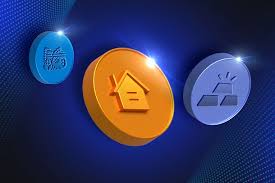
The Future of Investing: Real Estate DeFi Revolution
The real estate market has historically been a bastion of traditional investment methods, characterized by high barriers to entry, substantial capital requirements, and a reliance on intermediaries. However, Real Estate DeFi (Decentralized Finance) is poised to revolutionize this sector, democratizing access to real estate investments and providing innovative solutions that leverage blockchain technology.
Understanding Real Estate DeFi
Real Estate DeFi refers to the integration of decentralized finance principles within the real estate market. It encapsulates various financial services spanning lending, borrowing, asset management, and investment strategies that utilize blockchain technology. By circumventing traditional financial intermediaries, Real Estate DeFi allows individuals to participate directly in property investments through tokenization, fractional ownership, and decentralized applications (dApps).
Key Components of Real Estate DeFi
The Real Estate DeFi landscape comprises several vital components that facilitate this new paradigm of investment:
- Tokenization: The process of converting tangible real estate assets into digital tokens often enables fractional ownership, making investments accessible to a broader audience. Each token typically represents a share in a real estate asset, allowing individuals to invest with smaller amounts of capital.
- Smart Contracts: These self-executing contracts on blockchain platforms allow for transparency and efficiency in transactions. They automate processes such as rental payments, property management, and distribution of dividends, eliminating the need for intermediaries.
- Decentralized Applications (dApps): These applications provide users with access to various services in the real estate sector, such as token trading platforms, lending protocols, and property management systems. dApps promote user empowerment while ensuring adherence to security protocols.
- Liquidity Pools: In traditional real estate, liquidity can be a significant challenge. Real Estate DeFi introduces liquidity pools that allow investors to provide funds for specific projects or properties and earn returns on their investments, enhancing liquidity for real estate assets.
Benefits of Real Estate DeFi
The Real Estate DeFi ecosystem brings numerous advantages to both investors and property owners:
- Accessibility: With lower capital requirements and fractional ownership opportunities, individuals can access investment opportunities that were once limited to the affluent.
- Transparency: Blockchain technology provides an immutable record of transactions, ensuring transparency and trust in dealings. This can significantly reduce fraud and disputes associated with traditional real estate transactions.
- Cost Efficiency: By eliminating intermediaries, Real Estate DeFi can significantly reduce transaction costs, allowing more of the investor’s money to contribute to an asset’s potential appreciation or generate rental income.
- Global Reach: Real Estate DeFi enables investors to participate in real estate markets around the world, breaking down geographical barriers and diversifying their investment portfolios.

Challenges and Considerations
Despite its promising potential, Real Estate DeFi faces several challenges that stakeholders must address:
- Regulatory Uncertainty: The intersection of real estate and decentralized finance is still evolving, and regulatory frameworks may lag behind technological advancements. Stakeholders must navigate these uncertain waters to ensure compliance and mitigate risks.
- Market Volatility: The inherent volatility associated with cryptocurrency markets can impact the stability of investments in Real Estate DeFi, particularly for assets that are tokenized and traded frequently.
- Security Risks: As with any blockchain-based system, security is paramount. Smart contracts can be vulnerable to hacks or exploits if not coded correctly. Investors should conduct thorough due diligence before investing.
- Educational Barriers: As a relatively new concept, Real Estate DeFi may be complex for some investors. Educational resources and support systems will be crucial in enabling widespread adoption.
Case Studies: Successful Real Estate DeFi Projects
Many innovative projects are at the forefront of the Real Estate DeFi movement. Here are a few notable examples:
- RealT: This platform allows users to invest in fractional ownership of rental properties through tokenization. Investors earn rental income proportional to their ownership stake, all while benefiting from blockchain’s transparency.
- Meridio: This platform focuses on fractional ownership for commercial real estate, enabling investors to diversify their portfolios more efficiently and gain access to prime projects.
- Redfin: A traditional real estate company that has begun integrating blockchain technology to enhance transaction processes and improve clarity in property data management.
The Future of Real Estate DeFi
The Real Estate DeFi sector is rapidly evolving and has the potential to reshape how individuals invest in and manage real estate assets. As technology advances and more players enter the market, we can expect greater innovation in financial products, improved accessibility, and expanded global participation.
Collaboration between traditional real estate stakeholders and technology innovators will be critical in overcoming existing challenges and leveraging synergies in this dynamic landscape.
In conclusion, Real Estate DeFi stands at the intersection of two transformative industries—real estate and decentralized finance. It represents a step towards a more inclusive and efficient financial system. As participants in this growing ecosystem, we must embrace the challenges while striving for greater access, transparency, and trust in real estate investments.


